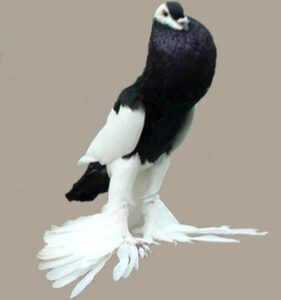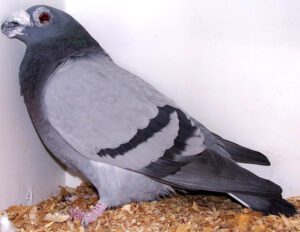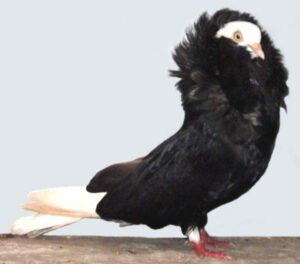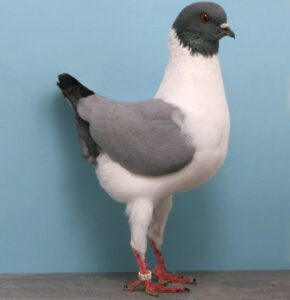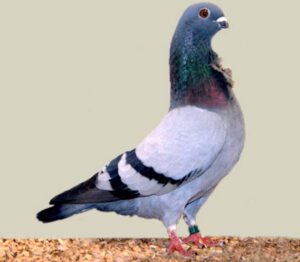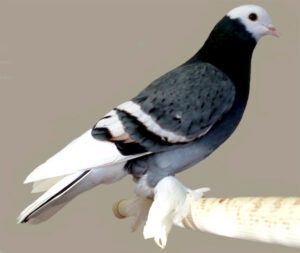The Modena pigeon is a breed of domestic fancy pigeon from Italy. It derives it’s name from the city of Modena in Italy, where it was first bred centuries ago.
The breed was actually developed over many years of selective breed. This breed and other varieties of domesticated pigeons, all are descendants from the feral or wild rock pigeon.
Many people consider this breed to be the world’s top show pigeon. It is an old breed, and story of this breed begins in the early 1300s.
These birds were actually a slim and small performing bird at that time. However, read some more information about the Modena pigeon below.
Modena Pigeon Characteristics
The Modena pigeon is an average sized bird with very beautiful appearance. It is mainly bred to present a striking curvy shape with a prominent chest, uplifted wings and tail carried high. Total impression of this bird is being round and proud.
It comes in many different colors in two main varieties, Gazzi and Schietti. The Gazzi is a pied marking with the head and portion of the throat, the wings and the tail colored and the rest of the bird being white. Schietti’s are non-pied. Average body height of the Modena pigeon is about 24 cm, and their mature body weight is about 350 grams.
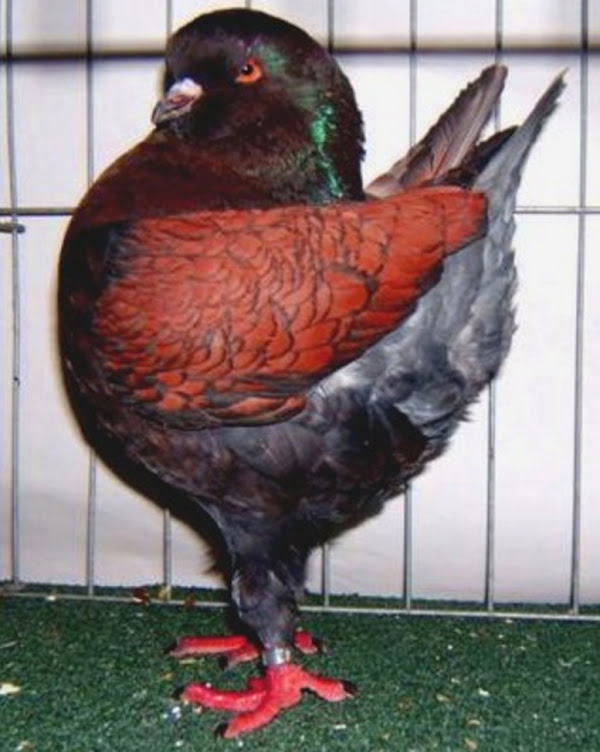
Uses
The Modena pigeon is show breed. It is raised mainly for show purpose.
Special Notes
The Modena pigeon is a very beautiful bird. Most of the birds of this breed are calm and gentle, which make them excellent for show. Although some males can be aggressive. As a stockier variety of domesticated pigeon, the pairs sometimes have fertility problems.
Along with raising for show purposes, the breed is also very good for raising as pets. Average lifespan of these birds is about 7 to 10 years. However, review full breed profile of these birds in the chart below.
| Breed Name | Modena |
| Other Name | None |
| Breed Purpose | Exhibition, pets |
| Special Notes | Beautiful birds, calm and gentle in nature, excellent for show, males can be aggressive, good for raising as pets |
| Breed Class | Medium |
| Weight | Around 350 grams |
| Climate Tolerance | All climates |
| Flying Ability | Good |
| As Pets | Good |
| Color | Many |
| Rarity | Common |
| Country/Place of Origin | Italy |

